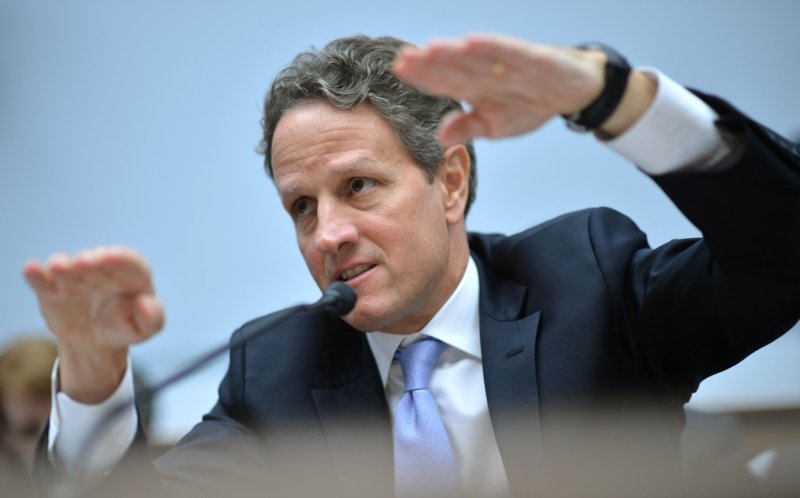U.S. Treasury Secretary Timothy Geithner testifies during a House Financial Services Committee hearing on Capitol Hill in Washington, July 25, 2012. UPI/Kevin Dietsch |
License Photo
WASHINGTON, Nov. 17 (UPI) -- U.S. Treasury Secretary Timothy Geithner said a temporary plan to avoid the so-called fiscal cliff would take Washington's budget talks a step backward.
Adopting a plan that extends tax rate cuts enacted during the administration of former President George W. Bush until Congress and the White House agree on a target for new tax revenues would add uncertainty to the marketplace and reduce the incentive both sides have for reaching an agreement, Geithner said.
Geithner believes a budget plan could be adopted "within several weeks," The Hill reported Saturday.
House Speaker John Boehner, R-Ohio, formally proposed a two-step process for negotiations, starting with setting targets for revenue and savings and then determining specific steps to reach the targets.
"Once we settle on those targets the Speaker proposed, we can create simple mechanisms, in statute, that would achieve those revenue and spending goals. They would be in place unless or until more thoughtful policies replace them," Boehner's office said.
The "fiscal cliff" is a term first used by U.S. Federal Reserve Ben Bernanke to describe a half a trillion dollars in tax increases and spending cuts that are set to kick in Jan. 1.
Economists have said the combination of spending cuts and tax rate hikes would send the economy back into a recession. The plan, which was agreed to after Republicans balked at raising the federal debt ceiling in 2011, includes several politically unpopular policies, including cuts in defense spending and raising taxes for the poor, The New York Times reported.
Allowing the budget plan to proceed would cut the federal deficit from 7 percent of the gross domestic product in 2012 to 1 percent in the fiscal year 2015, the Congressional Budget Office said.
By that measure, the fiscal cliff would be a sizable step toward reaching a balanced budget. But many economists question whether the economy can survive such strong medicine.










